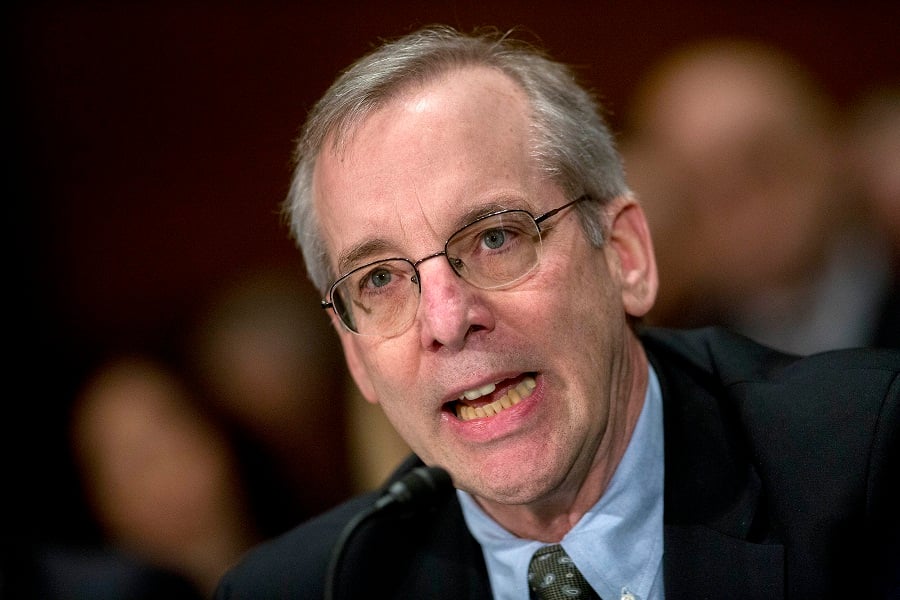Inflation remains a wildcard but corporations in good shape, consumers have room to run.
Federal Reserve Bank of New York President William C. Dudley said he's relatively optimistic a growth rebound will warrant raising interest rates in 2015, though he's “not reasonably confident right now” inflation will climb.
“I believe that the growth prospects for the U.S. economy over the remainder of 2015 will improve,” Mr. Dudley said in a speech at the Bloomberg Americas Monetary Summit in New York. “When, hopefully, the data support a decision to lift off later this year, it does not mean that U.S. monetary policy will be tight.”
Fed policy makers last month were split over whether they would raise rates in June or later, a debate that occurred before disappointing payroll figures for March, minutes of their most recent policy meeting showed.
“It will be important to determine whether the softness in the March labor market report was temporary, or if it foreshadows a more substantial slowing in the labor market than I currently anticipate,” Mr. Dudley said. “The timing of normalization remains uncertain because how the economy evolves is also uncertain.”
The U.S. 10-year yield was up one basis point, or 0.01 percentage point, to 1.88% Tuesday morning in New York, according to Bloomberg Bond Trader data. It touched 1.82% on April 6, the lowest since January. That compares with a five-year average of 2.60%.
WEAK DATA
Most policy makers expect to raise the benchmark interest rate some time this year, according to forecasts released last month. A recent run of weak data on housing, retail sales and industrial production has prompted some officials to say they are wary of raising rates too soon.
They want to see continue gains in the labor market and to have reasonable confidence inflation will rise toward the Fed's 2% goal before raising rates.
“I'm saying I think I will be reasonably confident in the future,” Mr. Dudley said in an interview. “But I'm not reasonably confident right now.”
Prices as measured by the Fed's preferred gauge rose 0.3% in February from a year earlier. Inflation has lingered below the Fed's target since May 2012.
BUSINESS CONFIDENCE
Still, Mr. Dudley highlighted reasons for optimism, including a positive environment for businesses and consumers.
“Corporate sector fundamentals are exceptionally good,” he said in response to a question. “Everything you look at — financing costs, plenty of liquidity available at very low costs, cash flow is very strong — all positive.”
Moreover, “the consumer has plenty of room to run,” he said, citing measures of consumer confidence that are close to their post-recession peaks.
Mr. Dudley also said he's watching wages to gauge the health of the job market.
“If the unemployment rate were to decline but wages just stayed subdued, that would tend to cause you to think there was more slack in the labor market,” he said.
Economists forecast growth will slow to a 1.4% annual pace in the first quarter from 2.2% in the previous three months, according to another Bloomberg survey.
DOWNSIDE RISKS
“While I am relatively optimistic about the growth outlook for 2015, I also must acknowledge that there are some significant downside risks,” Mr. Dudley said.
He cited staff estimates that the rise in the value of the dollar could reduce growth by 0.6 percentage point this year, and said a slowdown in business investment following a drop in oil prices “will undoubtedly exert a meaningful drag on economic activity.”
Mr. Dudley, 62, is the central bank's top liaison with Wall Street and holds a permanent vote on the rate-setting Federal Open Market Committee.
He joined the New York Fed in 2007 from Goldman Sachs Group Inc., where he was chief U.S. economist for 10 years, to run the markets group responsible for implementing monetary policy. In 2009, he replaced Timothy Geithner as president of the reserve bank.
While Fed tightening “most likely will be accompanied by some degree of market stress and turbulence,” Mr. Dudley said, emerging market countries are better equipped to handle the fallout than in past tightening cycles.
He cited the absence of pegged exchange-rate regimes, “moderate” external debt levels, larger foreign-currency cushions and better fiscal discipline in emerging markets.







